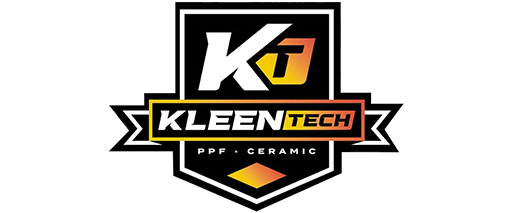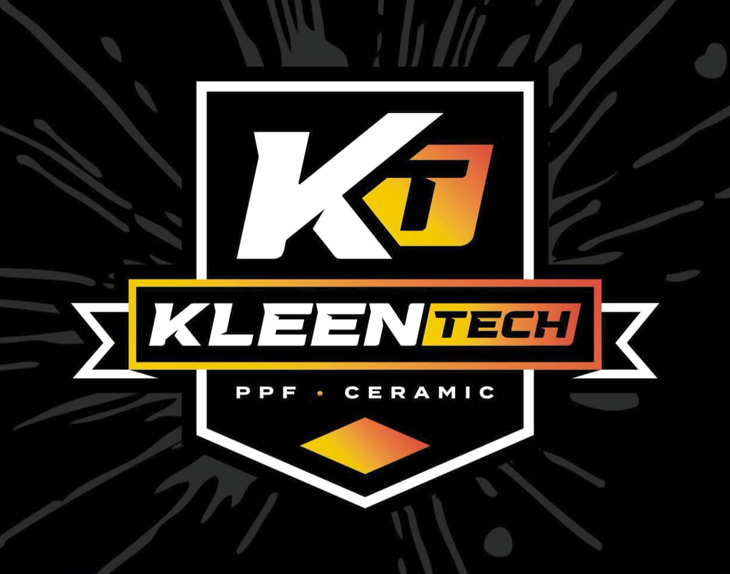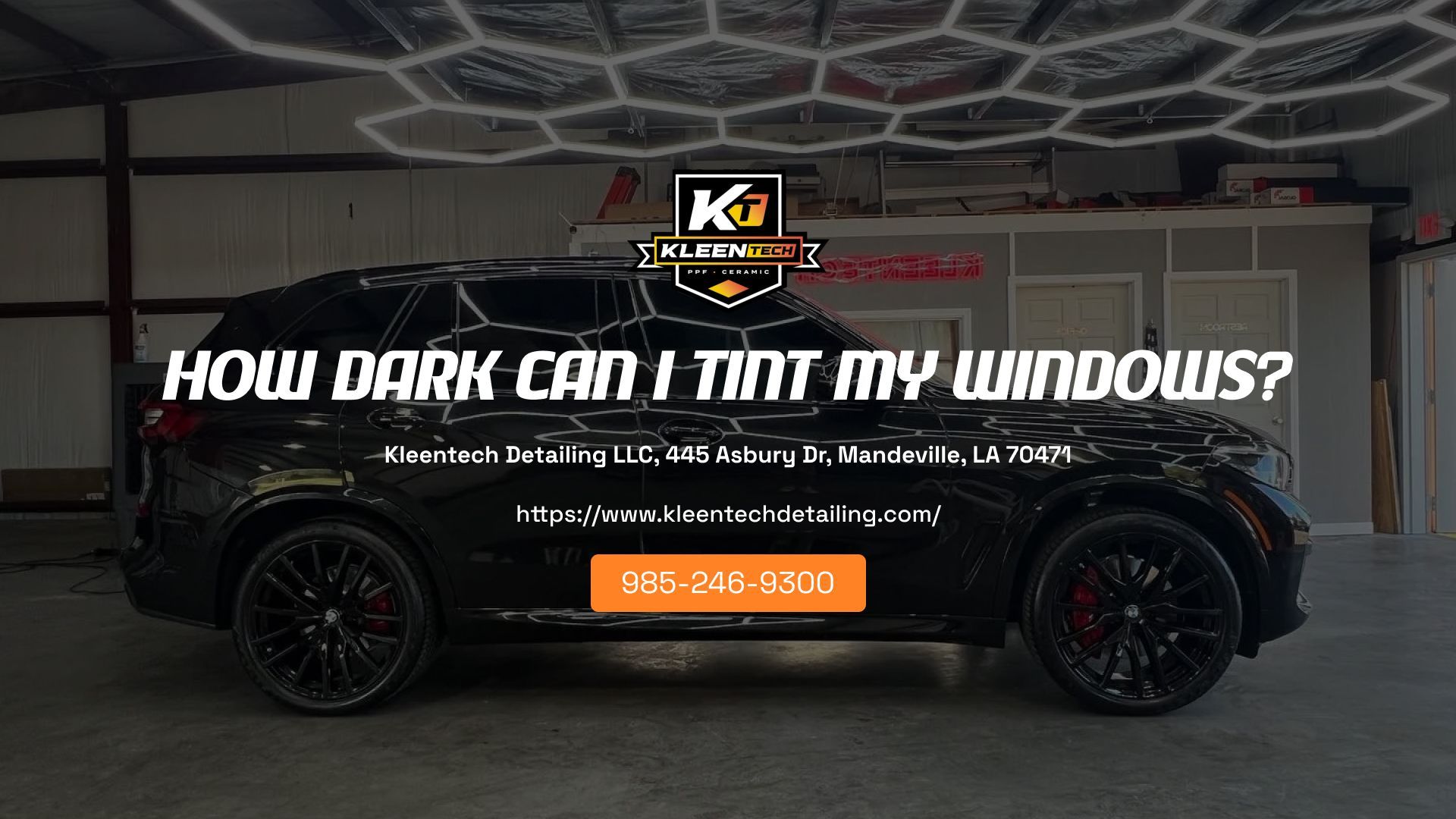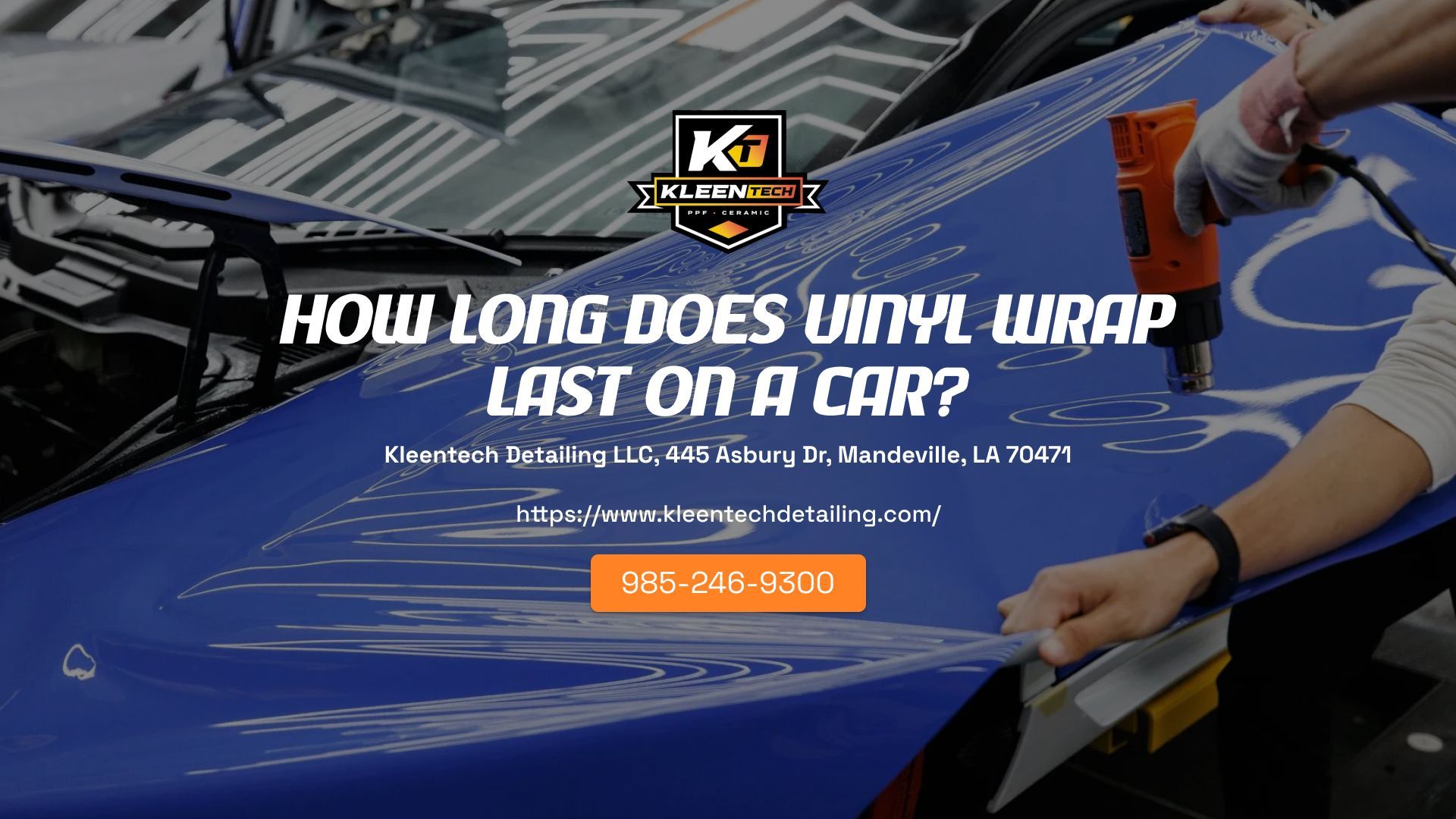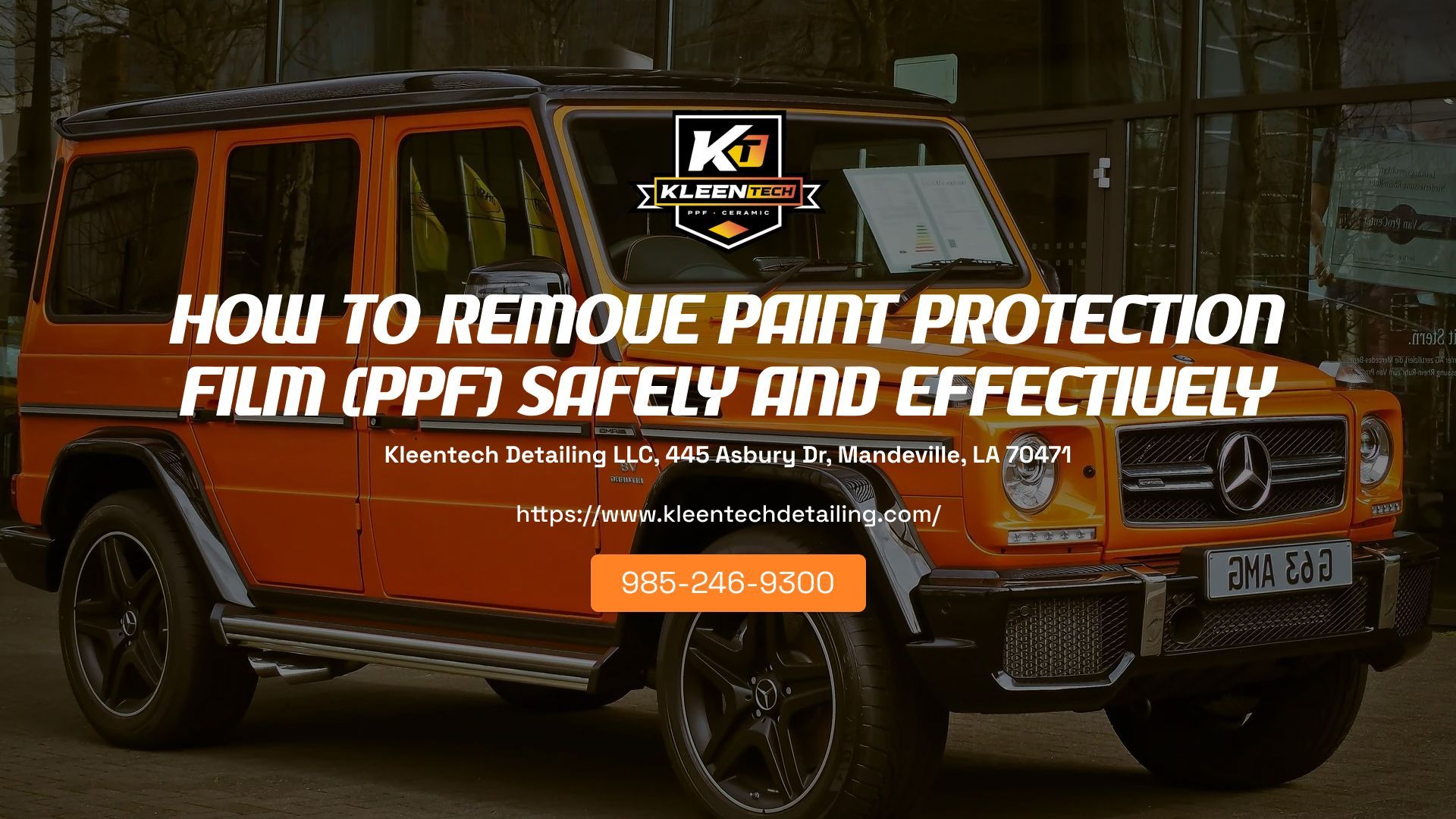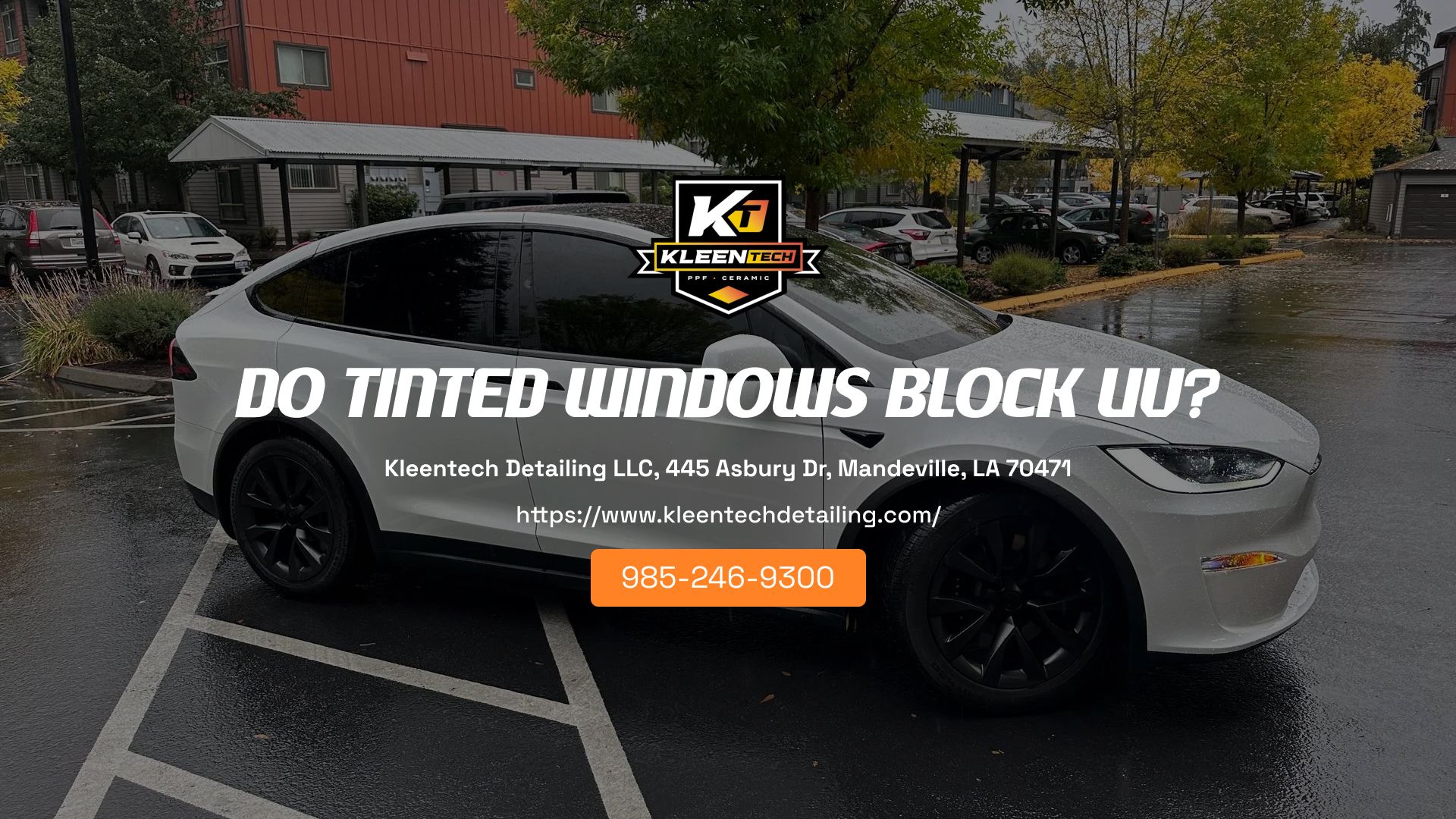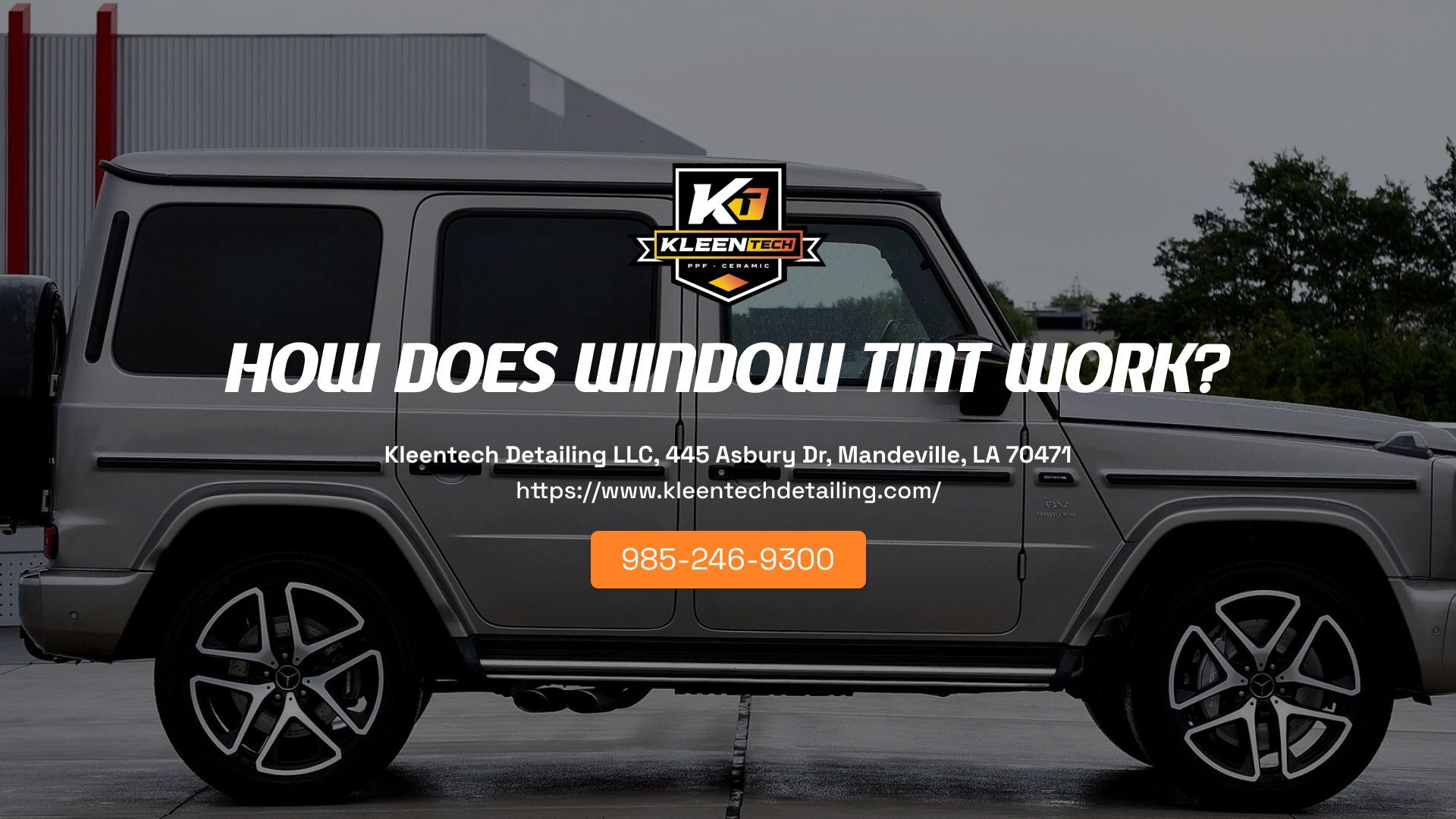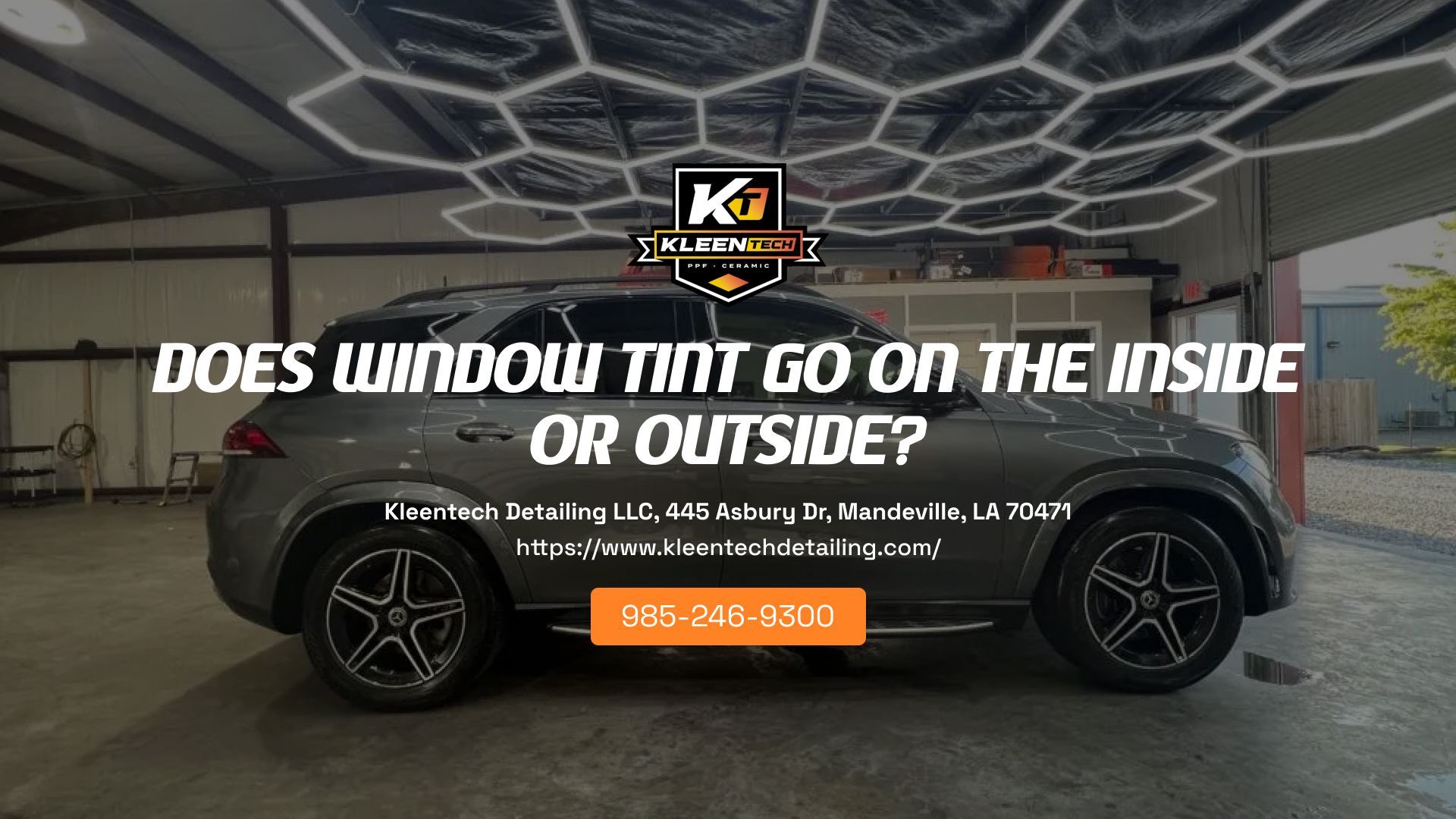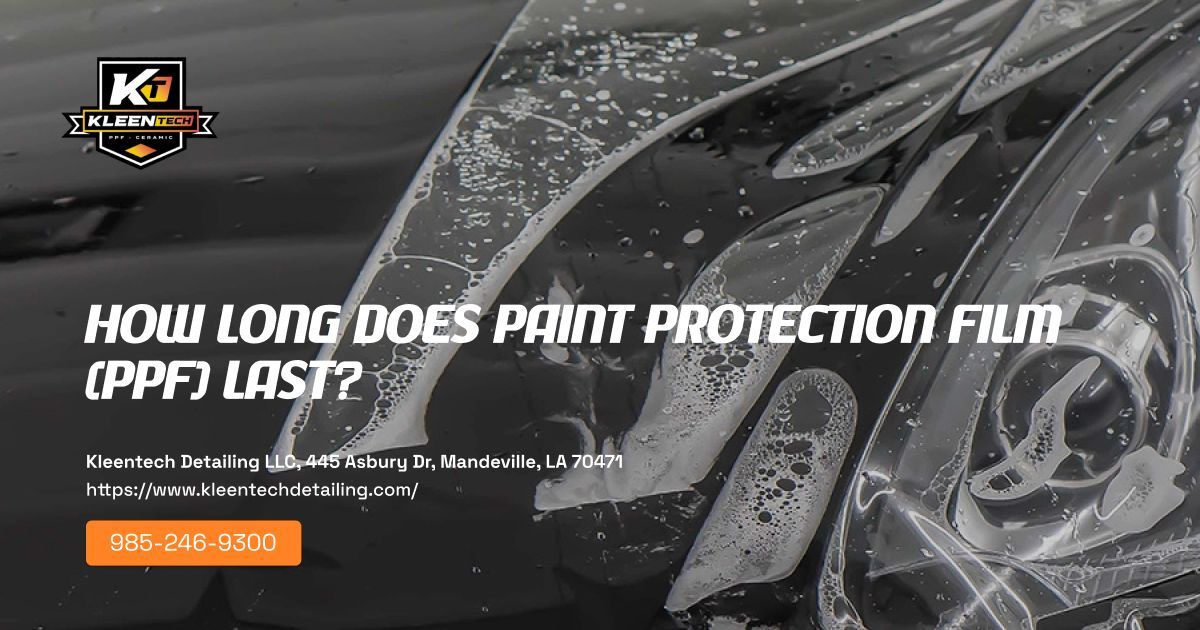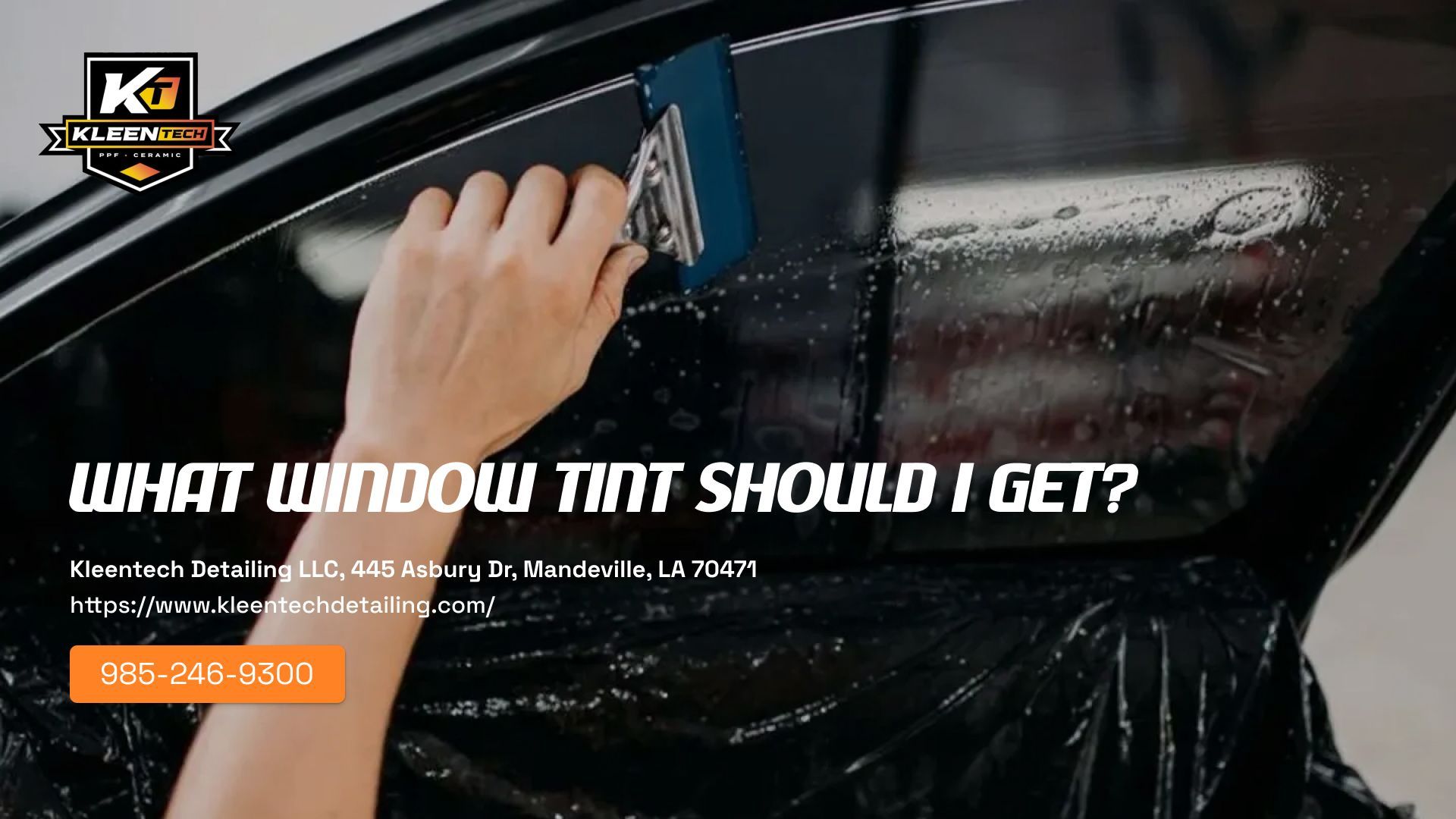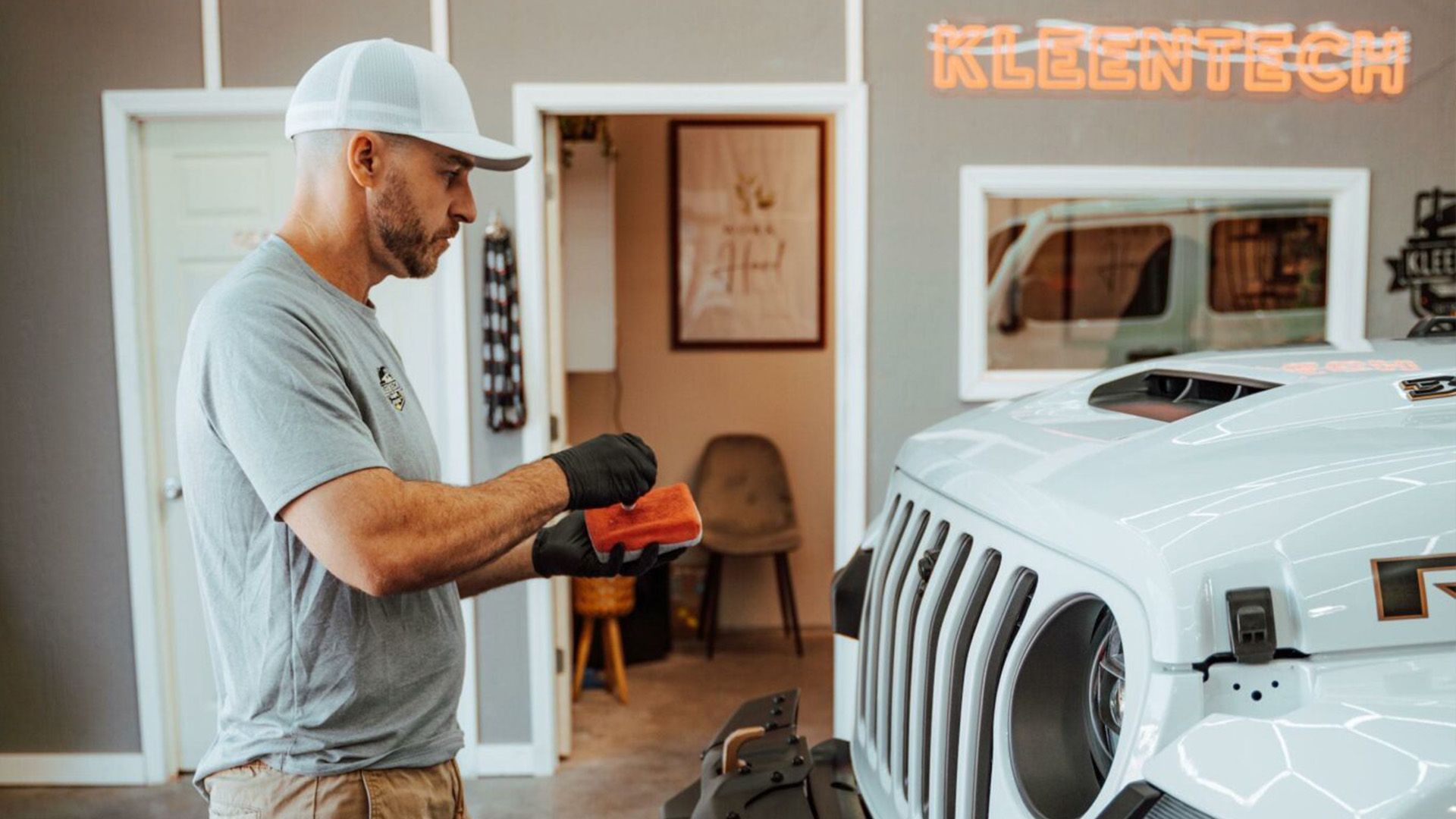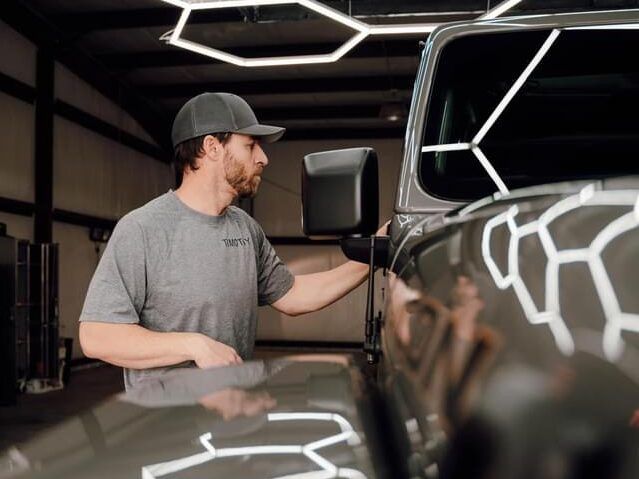How Much To Tint Car Windows In 2025?
Table of Contents
Wondering how much it costs to tint car windows in 2025? Prices typically depend on factors like film quality, vehicle design, and installation. As a smart part of vehicle customization, tinting enhances comfort, style, efficiency, and interior longevity. In this guide,
Kleentech Detailing breaks down everything drivers need to make the right choice.
Key Takeaways
- Prices of car window tinting range from $150 to $800+, based on the type of car, film quality, and installation.
- Ceramic, carbon, dyed, and hybrid tint films all provide different degrees of UV protection, heat blockage, and lifespan.
- Vehicle shape, window count, and local tint laws affect total cost and legal compliance requirements.
- DIY tinting is less expensive but usually fails to provide durability, clarity, and state VLT compliance.
- Professional tinting 5 – 10+ years, performs better, and offers legal, long-term protection.
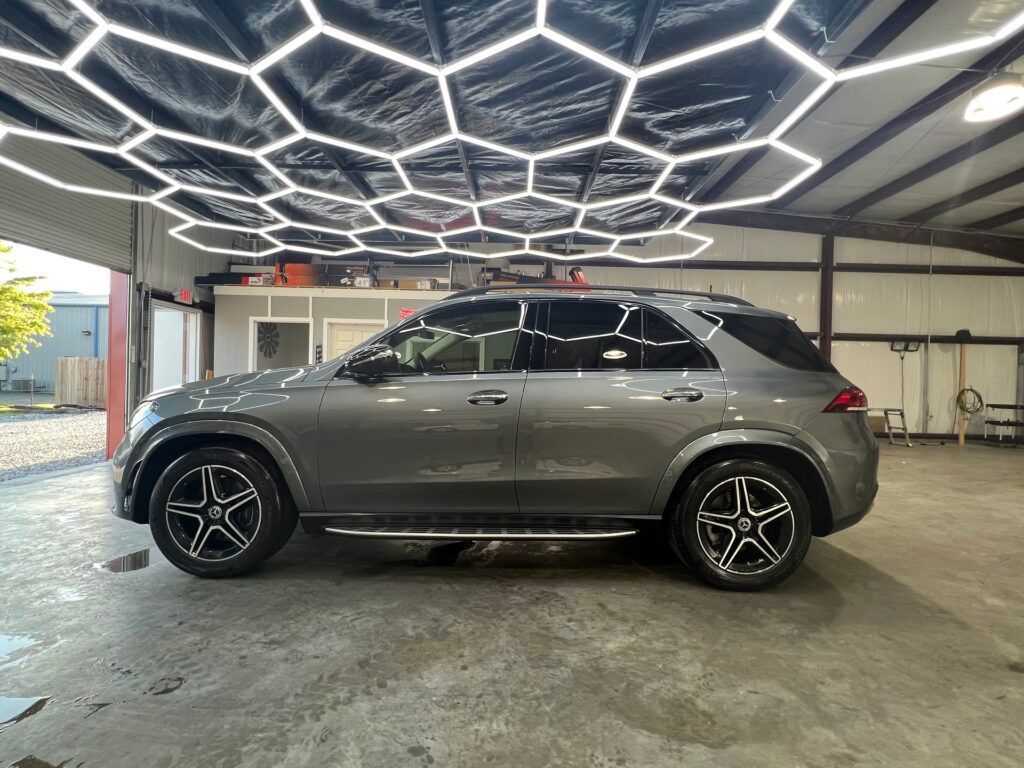
What Are the Benefits Of Window Tinting?
Curious why so many drivers choose window tinting? Discover how the right window film can boost privacy, protection, and comfort:
- Privacy window tint limits visibility from outside. Unlike transparent or open glass, dark film enhances security.
- UV-blocking window tint with a UV protection layer blocks up to 99% of UV rays.
- Security window tint includes a safety layer that prevents glass from shattering.
- Heat-rejection window tint enhances heat control, reducing A/C use and supporting energy efficiency products.
- Glare reduction film with an anti-glare layer minimizes discomfort from bright or overexposed light.
- Scratch-resistant coating and UV protection layer protect interior materials. Important for long-term automotive maintenance services.
What Affects The Cost Of Car Window Tinting?
How much does window tinting cost? The price depends on vehicle type, film type, and tint installation complexity. Below is a unified breakdown of the key pricing factors.
Cost By Car Type
| Vehicle Type | Typical Cost | Recommended Tint |
|---|---|---|
| Sedan | $150–$250 | Dyed window tint – basic privacy film, easy application |
| Coupe | $200–$300 | Carbon window tint – sloped glass, non-reflective, stylish |
| SUV | $250–$400 | Ceramic window tint – more glass area, better UV protection layer |
| Truck | $200–$350 | Dyed or ceramic tint – full or cab-only coverage, more tint film |
| Tesla | $500–$800+ | Nano-ceramic film – curved tech glass, needs ceramic particles |
Cost By Tint Film Type
| Film Type | Price Range | Features |
|---|---|---|
| Ceramic Tint | $400–$800+ | Maximum UV and IR rejection, clear visibility, long-lasting |
| Dyed Tint | $100–$200 | Entry-level, basic UV protection layer, prone to fading |
| Carbon Tint | $200–$350 | Durable, fade-resistant, sleek look |
| Hybrid Tint | $250–$400 | Combining dyed and metalized layers, balanced performance |
Other Factors That Affect Tinting Cost
- Number And Complexity Of Windows
More glass panels or curved shapes increase labor time. Precision wet application and squeegeeing take longer, raising window count tint pricing.
- Warranty
Films with a tint warranty, especially ceramic options, offer extended coverage. Premium warranties raise upfront cost but reduce long-term maintenance.
- Location And Tint Laws
Installer pricing varies by region. For example, in Louisiana, strict VLT (Visible Light Transmission) limits - 40% front, 25% rear, and a 5-inch visor strip - drive up costs due to inspection rules and required window film compliance.
Legal Tint Percentages By State
Each state has various VLT (Visible Light Transmission) laws. They are restrictions that specify which films can be used on each window.
In Louisiana, legal tint should provide at least 40% VLT on front side windows, 25% on rear and back sides, and a 5-inch visor strip on the windshield. Staying below these restrictions keeps you within the law and maintains important safety and security measures.
Can You Save Money By Doing It Yourself (DIY)?
| Factor | DIY Tinting | Professional Tinting |
|---|---|---|
| Cost | $50–$100 | $150–$800+ |
| Film Quality | Generic tint film | Premium ceramic, carbon, or hybrid film |
| Legal Compliance | May violate VLT regulations | Fully compliant with state tint laws |
| Durability | 1–2 years | 5–10+ years with tint warranty |
Conclusion: Professional window tinting costs more upfront but delivers longer-lasting protection, better film quality, and full legal compliance, making it the smarter long-term investment.
Get A Window Tinting Quote Near You
Ready to upgrade your ride? Get a quote from Kleentech Detailing, your local expert in automotive tinting. We use certified ceramic, carbon, and nano-ceramic films for unmatched UV protection, sleek looks, and full VLT compliance.
FAQs
How long does window tint last?
2–3 years for dyed tint. 10+ years for ceramic window tint or nano-ceramic film. Scratch-resistant coating adds durability, ideal for auto repair services.
Can I roll down my windows after tinting?
Wait 2–4 days after tint installation. Early use will degrade the adhesive layer. Dry weather accelerates bonding. Do not cut edges or clean until fully cured.
Is ceramic tint worth the price?
Yes. Ceramic tint is most resistant to UV and IR rays. Ceramic particle films have better heat control and clarity than carbon or dyed tint.
Will tinting affect visibility at night?
Dark or low tint can lower visibility. Glare reduction film does not get darker. VLT balanced tints offer privacy without sacrificing night driving.
Is window tint legal in every state?
Yes, but VLT varies from state to state. Utilize film that complies with local tint laws. This provides legal compliance and prevents inspection problems.
